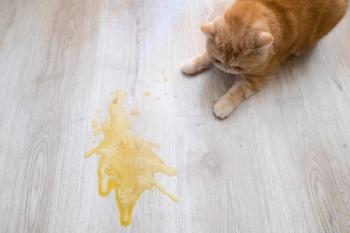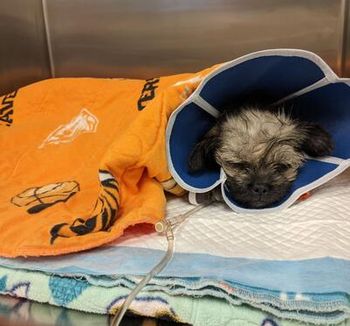
- dvm360 September 2020
- Volume 51
- Issue 9
The Dilemma: ‘What I do on my time is my business’
Does a veterinary practice have the right to force staff to follow COVID-19 safety protocols even when they are not working?
Richard’s Veterinary Center is a well-respected small animal facility located in the southwestern United States. The clinic’s success has been due in part to Dr. Richard’s hard work and professionalism. Over the past 17 years, the population of the surrounding community has increased five-fold and the hospital’s staff has grown from 6 to 48 members.
During COVID-19, the practice has been following what they call the “big 4” rules: curbside visits, strict hygiene, social distancing as much as possible, and masks at all times. Following these highly effective and simple rules should not have been difficult, yet they posed a challenge. Many staff members grew complacent and would often let their masks slip below their noses. During breaks, especially lunch breaks, staff often violated both social distancing and mask protocols. Understanding that these lapses were unintentional and to help the team comply, Dr. Richard appointed a staff member to be the clinic’s “COVID czar.”
The staff appreciated the new position and, of course, poked a bit of fun at Lucille, the newly appointed COVID czar. Fortunately, Lucille took her job quite seriously. She understood that the health and job security of the entire team depended on their adherence to COVID-19 safety protocols. In addition to the 4 rules mentioned above, Lucille added a prohibition against sharing pens. As a way to maintain social distancing, she relocated the break room dining tables to an area of the clinic that was going unused due to curbside care. Finally, she set up consult times with each staff member to discuss the safety measures they were taking outside the practice. This is when some staff members told Lucille she was overstepping her authority. One veterinary technician refused to have the meeting, telling Lucille that, “what I do on my time is my business.”
Lucille asked Dr. Richard for some direction concerning the negative feedback she was receiving from some staff members. He understood why some employees might feel this was an invasion of their privacy, and he agreed that what they did during their nonworking hours was their personal business. However, he also believed the pandemic required extraordinary precautions. If a staff member were participating in what he considered risky behavior while outside of work, he would have to make a decision based on the well-being of the practice. After all, he reasoned, a single COVID-positive staff member could bring all practice activity to a halt. As the sole practice owner, Dr. Richard was determined to see that no one endangered the health and well-being of his staff.
If he determined that a team member was not abiding by accepted medical community safety standards, that person would be required to take paid leave, be tested for COVID, and agree to adhere to mask wearing, social distancing, and hand washing while away from the workplace. If anyone felt that these requirements were an invasion of their privacy and personal space, they would have to part ways with the practice. Despite the resentment of several staff members for being treated “like children,” most agreed to Dr. Richard’s requirements. One staff member chose to leave the practice.
Were Dr. Richard’s rules too harsh? Was he treating his staff unfairly? We would like to know what you think. Email us your thoughts at dvm360news@mmhgroup.com.
Dr. Rosenberg’s response
Dr. Richard had to take a stand. COVID-19 prevention rules differ not only from state to state, but also from county to county. If staff members began to fall ill, he had neither a realistic nor remote treatment option for his patients. Regardless of the circumstances, veterinarians have to physically see and touch their patients to provide quality medical care. As the practice owner, Dr. Richard determined that the buck stops with him. He was responsible for the health and welfare of his staff, as well as the continued viability of his practice. Until the pandemic subsided, this practice owner was right to take extreme caution in the day-to-day management of the clinic, even if it meant offending some short-sited staff members in the process.
Dr. Rosenberg is director of the Voorhees Veterinary Center in Voorhees, New Jersey. Although many of the scenarios Dr. Rosenberg describes in his column are based on real-life events, the veterinary practices, doctors and employees described are fictional.
Articles in this issue
over 5 years ago
Surviving back to school in 2020over 5 years ago
Maximizing virtual client touchpointsover 5 years ago
Checking all the boxes in veterinary wellness visitsover 5 years ago
Study gauges best canine sterilization ages by breed and genderover 5 years ago
A roadmap for antimicrobial stewardship in veterinary practiceover 5 years ago
Dr. Fauci addresses AVMA conference attendeesover 5 years ago
AAHA/AAFP release updated feline vaccine guidelinesover 5 years ago
AVMA virtual convention keynote: Redefining wealthNewsletter
From exam room tips to practice management insights, get trusted veterinary news delivered straight to your inbox—subscribe to dvm360.




